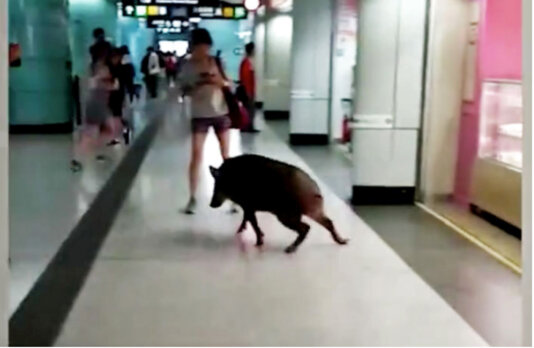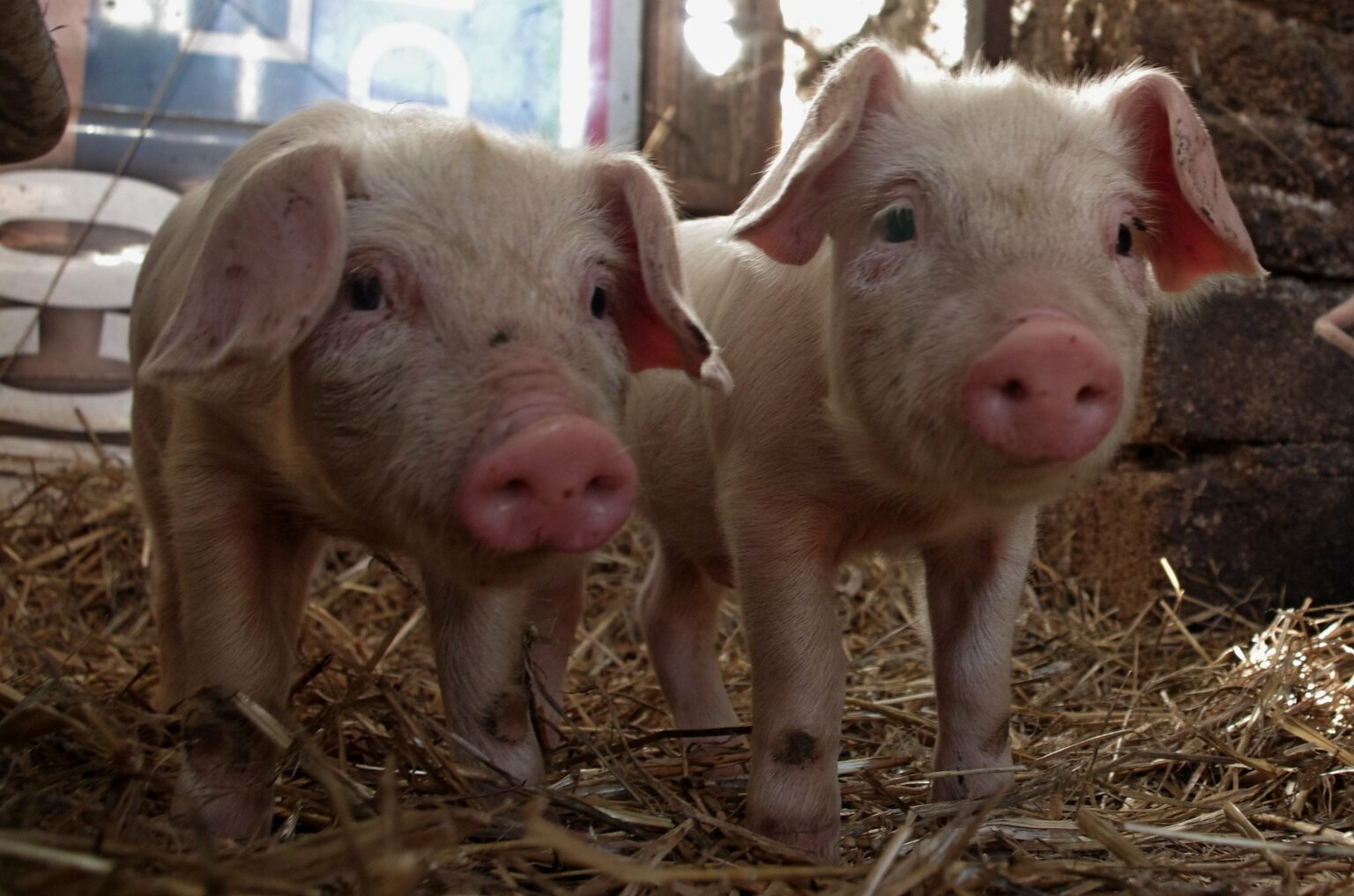- About
- Topics
- Picks
- Audio
- Story
- In-Depth
- Opinion
- News
- Donate
- Signup for our newsletterOur Editors' Best Picks.Send
Read, Debate: Engage.
| December 08, 2021 | |
|---|---|
| topic: | Animal Cruelty |
| tags: | #animal cruelty, #animal rights, #Hong Kong, #biodiversity |
| by: | Sasha Kong |
Wild boars are increasingly visible to the residents of Hong Kong's concrete jungle: they swam in the pool outside a major bank in the central area; they boarded a subway train; they searched for food in trash cans.
But the hungry bunch foraging for food are now in danger - authorities decided that their presence in Hong Kong has posed a threat to humans, and since mid-November embarked on a mass cull with a bait-and-kill approach.
Videos online showed government workers attracting pigs’ attention with bread and shooting them.
This came about after a police officer was attacked by a wild boar on 10 November, which jumped to its death right after. Two days after the incident, the head of Hong Kong's conservation department announced the new cull, citing “a serious nuisance” from wild pigs wandering in urban areas.
Authorities said that though they have been trapping, neutering and relocating wild pigs since 2017, the new measures “could not effectively control the wild pig nuisance.” They added that over 80 percent of the injury cases, or 36 cases, linked to wild boars in the last decade took place between 2018 and 2021. There are currently about 3,000 wild boars in the city.
A group of veterinarian students in the city called that number “extremely low” in an open letter to the government, urging officials to retrack what they called a “cruel” approach.
“Wild boars have feelings and senses, just like humans. They can feel pain and fear. Authorities stressed that they used dart guns and euthanasia, but wild pigs would inevitably suffer dear and excruciating torture during the process of hunting and dying," the students said in the open letter. "What’s more important is that this violates wild boars’ fundamental living rights - emerging in urban areas is definitely not a justified reason for the brutality they face."
Environmental NGO Greenpeace also calls on the government to withdraw the cull. “Wild animals, including wild boars, do not attack for no reason, unless they are threatened or provoked. Wild boars are part of nature. Greenpeace appeals to citizens not to feed or bother wild animals,” Greenpeace spokesperson Wai-lok Chung told FairPlanet.
The Society for the Prevention of Cruelty to Animals (SPCA) found the mass cull “problematic,” and suggested approaches with less intervention in wildlife and better control of human behaviour.
Hong Kong Wild Boar Concern Group, a civil organisation that protects wild boars and educates the public, said that urbanisation invades pigs’ habitat and that humans’ feeding of the animals have changed their diet and led to more wild boars entering urban areas for food. Wild boars are suffering from humans’ intervention and end up being killed due to it.
“We think urban planning should involve wild boars as stakeholders. The government should rebuild or compensate for their invaded habitat,” the group said on their social media.
The authorities, however, defended their move, and said that wild boars tend to attack people in urban areas and even spread diseases.
“If wild boars are now used to look for food in urban areas, their natural behaviour has changed. Regardless of hurting humans or not, they imperil human lives,” Wong Kam-sing, Hong Kong’s Secretary for the Environment, said in a press conference.
The government is also mulling over a relaunch of a license scheme that halted in 2017, which allowed the public to hunt down wild boars, Hong Kong’s public broadcaster RTHK reported.
However, a former hunting team member in the police told a local media that after gunning down a wild boar, he would bring the carcass to a Chinese restaurant and eat it with the accompanying police officer.
But the authorities said that hunters are supposed to bring the wild boar carcasses to designated collection points, sparking concerns by animal rights group regarding how this measure can trigger adverse effects in educating the public about respecting animals.
Wild boars are part of Hong Kong’s biodiversity that should be treasured, states an open letter by Greenpeace’s campaigner Tom Ng.
“Apparently, the boars were not included among the 'residents', despite having settled in the city for centuries. Can humans’ relationship with animals be more than just predator-prey?” Ng wrote.
Image by Magdalena Smolnicka.
By copying the embed code below, you agree to adhere to our republishing guidelines.

